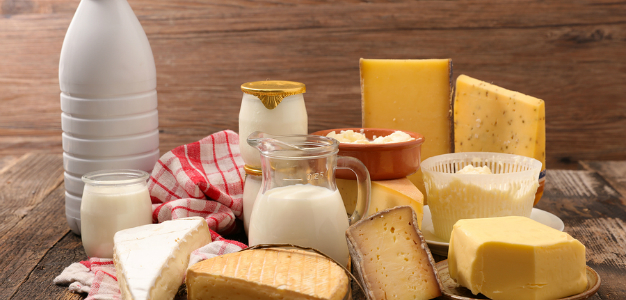You’ve no doubt heard that the Heart Foundation has changed its mind about the perils of dairy. For most of us, they say, it’s our call as to whether we choose full-fat or reduced-fat. So why the change?
Because research has consistently shown that full-fat diary doesn’t increase our risk of a heart attack or stroke.
The final nail in the coffin of the low-fat argument came about a year ago when a big Canadian-led study (over 136,000 participants aged 35-70 from 21 countries, followed for about 9 years) showed that people who ate around three serves of dairy a day had less cardiovascular disease than people with lower intakes.
Why is that? Who knows?
American cardiologist Stephen Sinatra thinks that at least part of the answer lies with cheese. He’s been keeping an eye on the work of Dutch biochemists who study vitamin K2.
K2 shuttles calcium to our bones and stops it from building up in our arteries. Which is mighty useful.
The Dutch are fond of cheese (they don’t have cities called Edam and Gouda for nothing) and cheese is probably the best source of K2 in the Western diet. The biochemists have shown that people who eat the most have the least calcification in their aortas. The aorta is the big artery that comes out of the heart.
Not all cheese is equal in the K2 stakes though. Hard cheese usually contains more of it than soft cheese. The front-runners include Stilton, Emmenthal, and yes, Edam and Gouda. Parmesan, in comparison, contains barely any, and Feta and Brie are low (though Camembert and Roquefort do better).
Now, of course, there’s an argument going that cheese might also be the reason that the French apparently have lowish rates of heart disease. That used to be attributed to red wine.
Australian dietician Rosemary Stanton also acknowledges that the fermented nature of cheese and yoghurt provide extra benefits to milk.
In the past, whole-milk products have been discouraged because they contain saturated fat. Saturated-fat is another story, but foods such as cheese or yoghurt contain a broad array of nutrients beyond just saturated fat.
It’s worth noting that across the populations followed in the Canadian research butter intake was generally low, so it wasn’t a feature of that study.
A different Canadian study published in 2016 suggested that our genes might determine whether dairy elevates our cholesterol.
What to take away from all this?
It’s not a license to overeat full-fat dairy. Moderation’s the go. All that’s really been shown is that it’s not linked to cardiovascular disease. If you have a genetic predisposition towards high cholesterol your doctor might still insist that you reign in your appetite for creamy cheeses.
Opt for quality. We’re not talking plastic cheese slices here.
Finally, sadly, no one has yet proven that eating slabs of butter is a great idea.

